If you thought nobody buys books at brick-and-mortar bookstores anymore, you’d be wrong. According to Statista, bookstores sell more than 700 million paper books each year. New bookstores are even popping up in smaller cities, inviting people to shop for their favorite stories.
But not all bookstores are so welcoming. This guy, for example, was asked to leave because the bookstore clerk thought his browsing the kids’ section was inappropriate. As he was only looking for a gift for his 5-year-old nephew, he decided to get back at the overzealous employee with petty revenge.
A man came to the bookstore to look for a gift for his 5-year-old nephew
Image credits: Sphotostudio/Envato (not the actual photo)
But he was soon reprimanded by an employee saying it was only for kids 12 and under
Image credits: GaudiLab/Envato (not the actual photo)
Image credits: OlyLift13
Bias towards men persists that they’re more likely to be creepy with children than women
Image credits: AboutImages/Envato (not the actual photo)
As evident from this story, men often have to bear the brunt of being labeled creepy or inappropriate when they’re doing nothing wrong. A man sitting on a park bench facing a playground or browsing the kids’ section in a library or a bookstore warrants dirty looks and sometimes even calls to the police.
While it’s statistically true that men creep on children more often, women commit these types of crimes too. Some research suggests that 10%-25% of perpetrators are women or female adolescents.
For some reason, we tend to think that men are creepier than women. A 2016 study by researchers at Knox College asked 1,029 women and 312 men to evaluate the creepiness of certain characteristics. The consensus was clear: 95% of the participants perceived men to be more likely to be creepy than women.
This bias also persists in childcare. Although the main reason men get rejected from jobs in schools and daycares is that they’re thought of as lousier caregivers than women, the perceived risk of crimes against children also plays a role.
A 2021 study set out to find out why men are so underrepresented in early childhood education roles. They found that employers choose women because of gender bias. Males get rejected simply because they’re men and, therefore, are incompetent in childcare.
What’s more, their research also showed that men are associated with the risk of potential child exploitation more often than women. Older research also points to the “discourse of suspicion,” where men interested in working with children are suspected of child exploitation.
Adults who read children’s books aren’t weird; they might just be missing their childhood
Image credits: FabrikaPhoto/Envato (not the actual photo)
We might say that the bookstore clerk asked the OP to leave because she stereotyped him as a creep due to gender bias. But there’s another element here as well: she most likely thought that a grown-up had no business being in the kids’ section.
For some reason, we think that it’s inappropriate or shameful for adults to read children’s or YA books. But if you’re a grown-up reader not shy of picking up Alice in Wonderland or a John Green novel, you’re not alone.
In 2012, 55% of YA books were actually bought by adults, and 78% of them were buying the books for themselves. Surprisingly, it’s not just the bestsellers like The Hunger Games, Harry Potter, and Twilight that the adults were going for. The readers reported around 220 various titles.
Some people may re-read the children’s books they read as kids for that feeling of familiar comfort. In fact, during the pandemic, many grown-ups revisited their childhood classics, such as The Chronicles of Narnia, Winnie the Pooh, and the Harry Potter series.
Also, as the OP very rightly says, children’s picture books are hilarious! As a former nanny, I completely agree. Show me a person who wouldn’t let out at least a chuckle while reading Frank and Bean: Food Truck Fiasco!
Katherine Rundell, the author of Why You Should Read Children’s Books, Even Though You are so Old and Wise, says that children’s literature speaks of universal virtues. “They say: look, this is what bravery looks like. This is what generosity looks like. They tell me, through the medium of wizards and lions and talking spiders, that this world we live in is a world of people who tell jokes and work and endure.”
People in the comments sided with the guy, wondering why the employee jumped to such conclusions
Thanks! Check out the results:



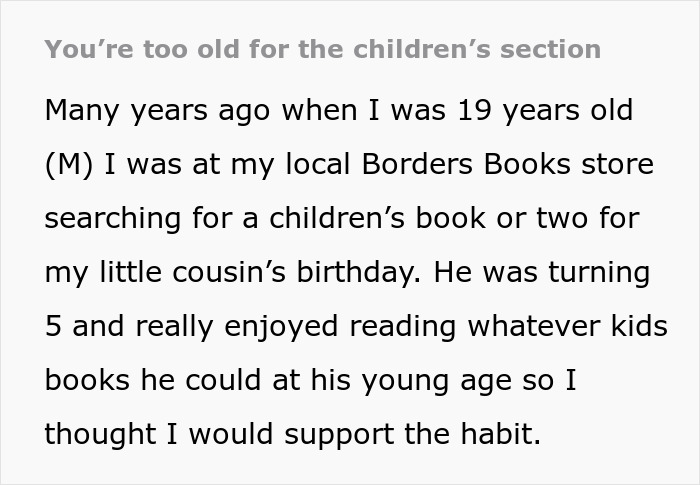
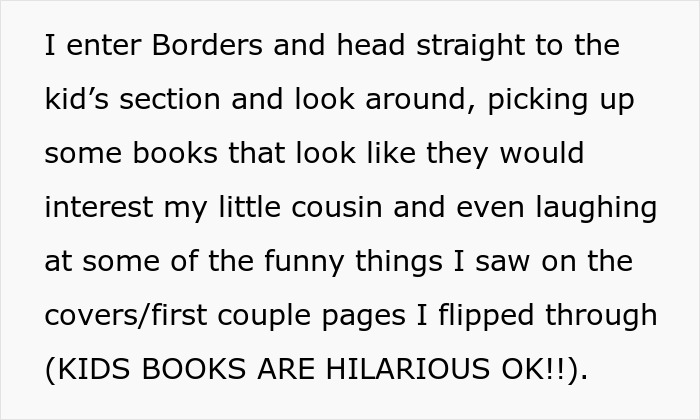
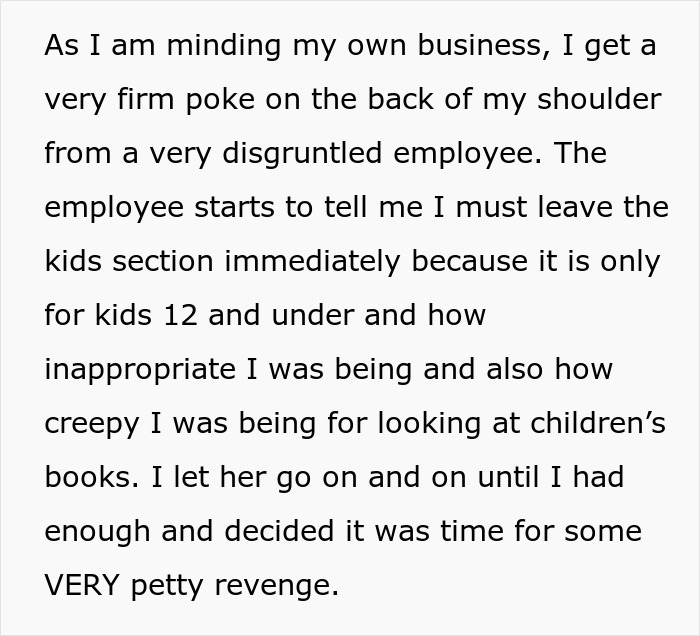
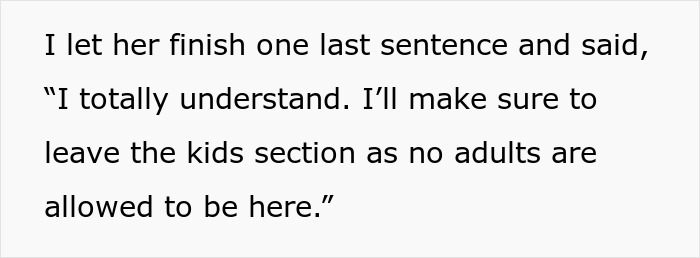

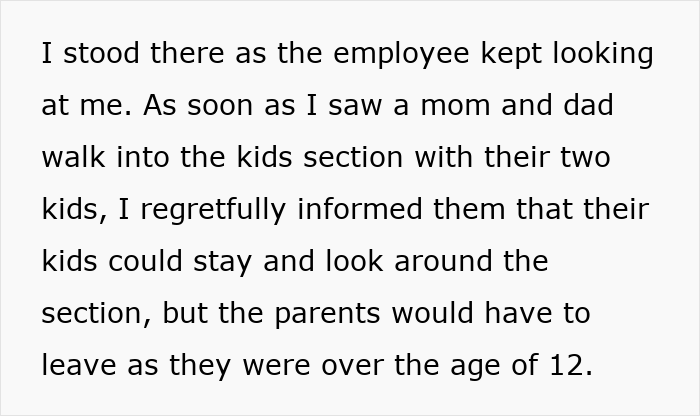
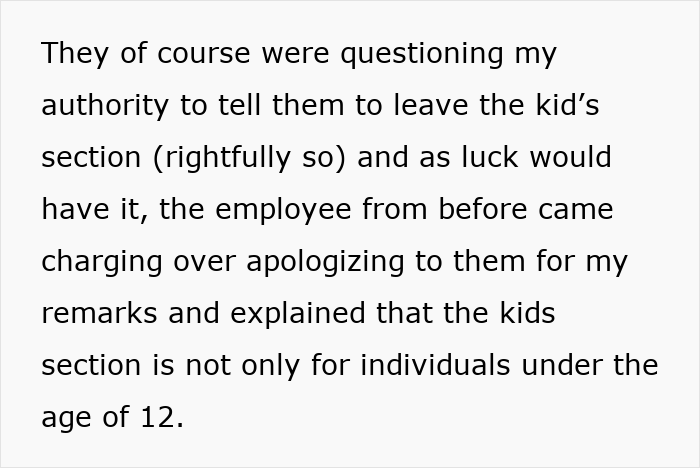
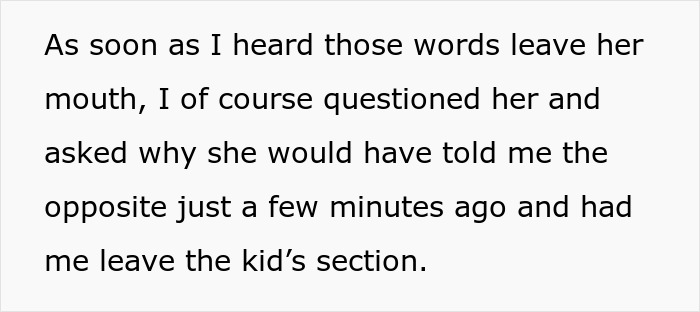

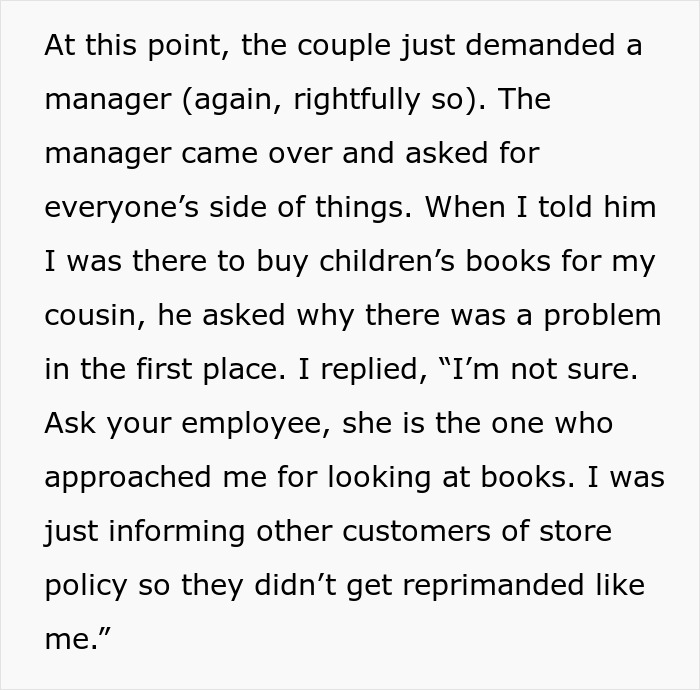
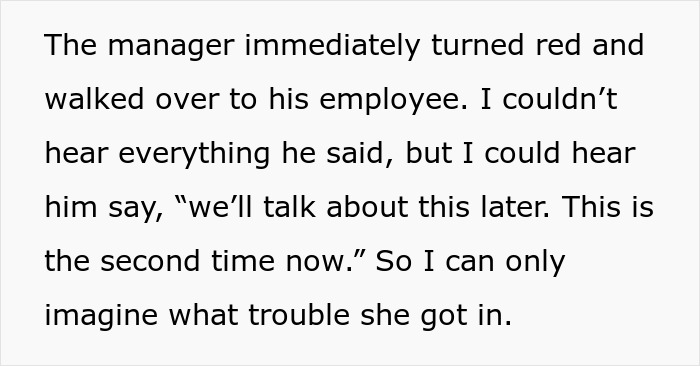
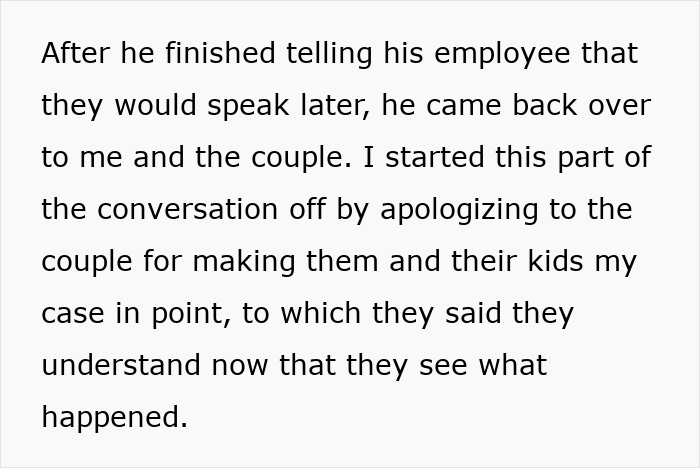
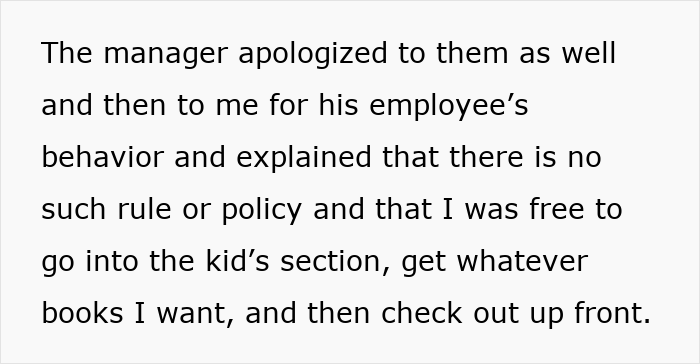
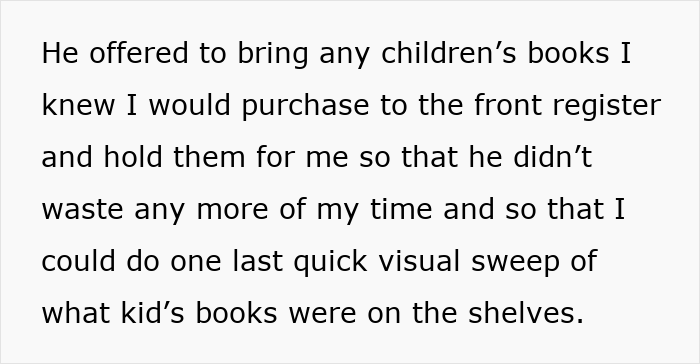
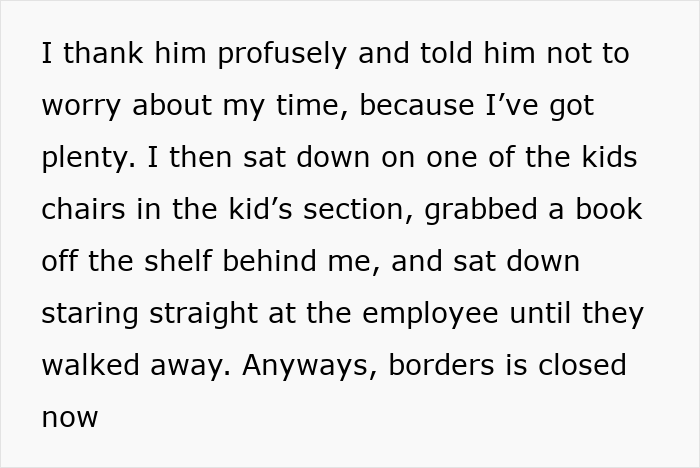


0 Comments